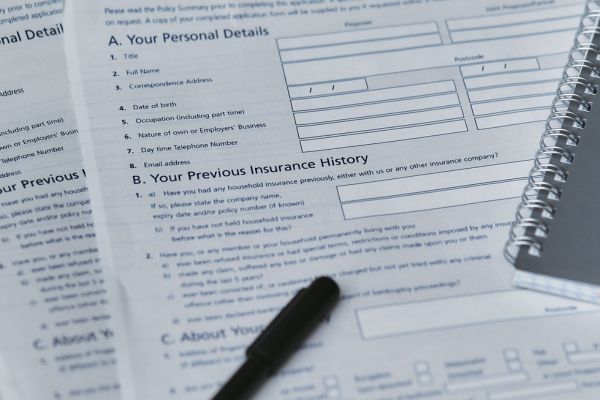Life insurance is a crucial component of financial planning, providing a safety net for loved ones in case of unexpected events. However, the path to obtaining life insurance is not always straightforward, especially for individuals with felony convictions. In this article, we’ll look into the reasons behind the challenges felons face in securing life insurance and explore potential alternatives and solutions.
Why Can’t Felons Get Life Insurance
Felony convictions cast a shadow over the insurability of individuals. Insurance providers view felons as higher risks due to perceived concerns about the potential for criminal activity or lifestyle choices that may lead to an early death.
If you have a criminal record, depending on whether you have a felony or misdemeanor, you may not be able to get life insurance. Life insurance premiums are based on your risk to insurance providers, and having a felony criminal record is seen as a high-risk for many life insurance companies.
That doesn’t mean there are no life insurance options for those who have a felony, though; you may just need to shop around more.
What is life insurance?
Life insurance is a contract between you and the life insurance company where you pay premiums (monthly or annually) for a payout that your living relatives will receive, known as the death benefit. Should you die, the insurance company pays the death benefit to your chosen beneficiary.
There are two types of life insurance: permanent life and term life. Permanent life insurance lasts the rest of your life, but it’s significantly more expensive because in addition to a death benefit, it has a cash value component that you can borrow against during your lifetime.
What life insurance options do felons have?
Can felons get life insurance? If you’re trying to get life insurance as a felon, but have been turned down, you have three choices for a more accessible policy:
- Group life insurance through your employer – If you work for a company and they provide life insurance, you could get a life policy through that program. Keep in mind that the coverage is effective as long as you work for them. Generally, this type of insurance does not require a background check from the insurance company. Typical coverage amounts range from $25,000 to $50,000.
- Accidental death and dismemberment insurance – This policy pays benefits for death caused by an accident. A death resulting from a heart attack or stroke won’t be covered. This isn’t ideal, but it’s better than nothing.
- Guaranteed issue – This policy has a two to three years graded benefits clause, which means that, if you die within two to three years, no death benefit will be paid; instead the beneficiaries will collect the total premium paid plus 10% interest. The max amount on guaranteed issue life insurance for convicted felons (or anyone) is $40,000 and you must be over the age of 40.
How to get insurance if you have a felony
If you have a felony and you’re looking for life insurance, you will have to find an independent agent works with multiple insurance companies and is familiar with finding coverage for someone with a felony record.
If you had life insurance before your felony conviction, it is best to continue those payments. If you do not have life insurance and have a recent felony, it will be hard to get coverage due to the recidivism rate for prisoners. The Bureau of Justice Statistics stated that “over two-thirds of released prisoners were rearrested within three years.”
The type of felony and the length of time between your incarceration and probation will be key factors for life insurance companies that do insure felons. The passage of time helps.
Morales advised giving truthful information on your life insurance application. If you are not sure, pause your application until you have all the information. Not answering truthfully can cause your application to be rejected. If your application is approved and you failed to disclose the extent of your criminal history, it can prevent your beneficiaries from receiving your death benefit.
Conclusion
In conclusion, the hurdles faced by felons in obtaining life insurance are multifaceted, involving legal, societal, and industry-related challenges. While the path may be challenging, it is not insurmountable. Exploring alternatives, demonstrating rehabilitation, and staying informed about legal developments can pave the way toward securing life insurance coverage.
FAQs
1. Can felons qualify for any type of life insurance?
While traditional life insurance may be challenging, there are specialized providers and alternative options available.
2. How do insurers assess the risk of insuring felons?
Insurers consider factors such as the nature of the felony, rehabilitation efforts, and the time elapsed since the conviction.
3. Are there specific resources for felons seeking insurance education?
Yes, various resources and organizations provide information and support for felons navigating the life insurance process.
4. What role does rehabilitation play in improving insurability?
Demonstrating rehabilitation efforts positively influences insurers’ perceptions and can improve the chances of obtaining coverage.
5. Is legal advocacy making a difference in felons’ access to life insurance?
Yes, ongoing efforts by organizations and legislative initiatives aim to address systemic challenges and improve access to life insurance for felons.






